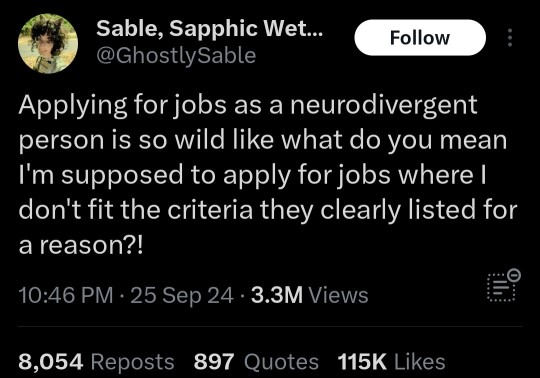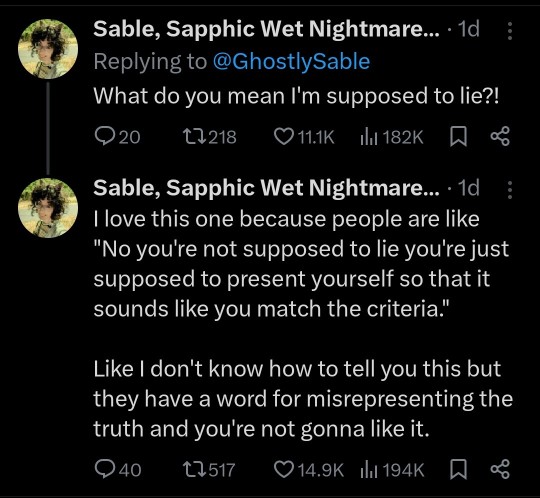#basically the terms don't neatly apply and that's fine she is designed to be an interesting grey area
Explore tagged Tumblr posts
Note
Would it be possible to classify Talita as "Cis" or "Trans"? Or would applying terms like that to her gender just make sense? At first glance, you could say she is cis since she is (I think) biologically female, but centaur gender roles dont really bear a semblance to any human culture so idk
She's xenogender. She identifies as an exotic alien gender (woman). I guess you could call her cis because of the similarities between female centaur anatomy and some human anatomy but the social organization centaurs have around sex are quite different than our own, so her being "cis" has limited comparison to a cisgender human woman.
#basically the terms don't neatly apply and that's fine she is designed to be an interesting grey area#runaway to the stars#jayart#talita
581 notes
·
View notes
Text
Sadly, no. :/ My teacher just pulled from her collected materials, which weren't many either - she hardly even used the board. The entirety of sixth form*, we basically just... talked, drawing from all the previous yrs.
The previous yrs were mostly a lot of annotating texts and mindmapping.
Here's a curriculum, skip to bold if you only want the meat of the matter!
If I were to design a course from scratch, I'd have everyone read a variety of books from different genres and eras first, thoroughly annotating and discussing as were going along. You need to include tasks of all skill levels, from simple summaries to complex questions. Then do a "repeat round" with genres and eras familiar from that first round.
The goal is for ppl to have clear archetypes in mind for the most common categories of literature, and an idea of common structures and symbolism. They also should get a feel for how you write abt a book, hence the summaries, so they can infer from reviews and summaries in the future.
The goal is to pick books for a canon that is versatile enough contrast works, but also follows western literary conventions closely enough to give you an idea of the historic foundations modern literature (in the west and many other places - yay colonialism...) builds on. You can absolutely branch out from that, but it needs to be done. If only to realise what you'd be missing if you only read the classics and a couple of white modern authors.
Book clubs can be amazing for this, they just usually suffer time constraints, so they often move on from a text before actually having got to the core of it. And I don't blame them - not only do members still have a life, it can also get incredibly tedious to pick apart a text ad nauseam.
If you're at a point where you've done all of that and all you need is pointers on how to apply that to a book you don't know, here's a checklist of what to find out:
- time period
- genre (ok if ultimately undefined)
- motifs the author commonly uses
- longer, detailed summary
- two or three short summaries
- three to five short reviews (each under 2 pages)
- a glance at the beginning of the book
- a glance at the end
- a short excerpt from one or two defining moments
If you have secondary literature you're supposed to apply to the text, you should now be fine to start reading that instead of reading the whole book first!
*Sixth form is the last two yrs before you get your A levels in Britain. I'm not British, I'm German, but I use the British terms bc they apply pretty neatly. :)


124K notes
·
View notes